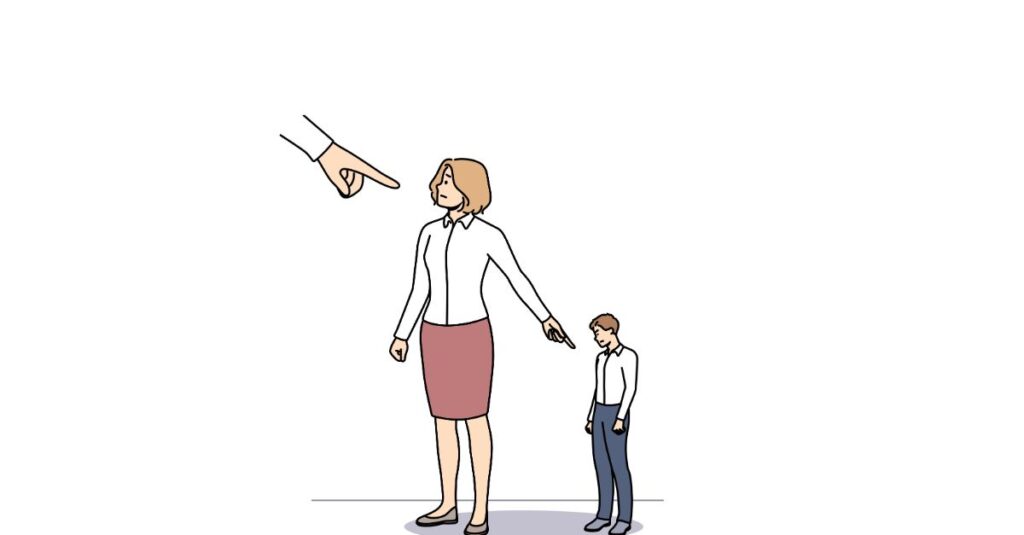In history as in human life, regret does not bring back a lost moment and a thousand years will not recover something lost in a single hour. – Stefan Zweig
To let go of regret isn’t easy, but it’s necessary.
No One Is Immune to Feeling Regret
Our relationship with regret starts early.
At 8 years old, my regrets were small, like missing the ice cream vendor’s bells on a scorching May afternoon. They were fleeting and easy to forget, much like the ice cream that melted before I could taste it.
By 16, I was too busy enjoying life to even think about regret, let alone dwell on it.
At 32, my regrets started to shift. They weren’t about missed ice cream anymore, but minor parenting dilemmas—missing playdates or buying the wrong diaper brand.
But after crossing 40, regret found a way to poke around more persistently. It lingered in the quieter moments, asking uncomfortable questions about my choices.
I realized that regret in midlife feels different. It’s no longer about trivial things but about deeper, more personal reflections.
Suddenly, it is about the lost years of living someone else’s dreams or not being entirely true to myself.
Midlife often brings about natural re-evaluations of our past choices, driven by societal pressures, aging, or even children leaving the nest.
These moments of transition make it easier for regret to bubble up. Society makes it easy for such regrets to manifest if you are not watchful. I remember going for job interviews, and I was reminded why I took a break from my career. Raising a family makes people redundant at other places.
Overcoming regrets after 40 doesn’t come easy.
They don’t disappear with age. Instead, they grow as you accumulate more life experiences, reminding you of the things you didn’t do and the things you wish you hadn’t. Some of us might even regret letting go of a relationship too soon or spending too much time in the wrong one.
But here’s a truth I’ve come to embrace—regret is part of the human experience. And when faced with it, you have a choice: stay stuck in regret, or learn to turn regret into growth. But carrying around the weight of self-blame for life won’t get us anywhere.
Will Distracting Yourself Work to Overcome Regrets?
Regret feels uncomfortable, like walking with pebbles in your shoes while hiding your pain from others.
In addition to the emotional toll, holding onto regret can impact your physical health—leading to stress, insomnia, and even illness.
Studies have shown that unresolved regrets can increase anxiety and affect overall well-being, making it all the more important to address them.
The temptation to avoid it stems from this. But distracting yourself with endless scrolling, binge-watching, or staying overly busy only makes things worse. Research shows that these distractions prevent us from truly moving forward.
The moment I stopped running from my regrets, something shifted. I noticed they didn’t look like failures. It wasn’t about drowning out the feelings but about allowing myself to feel regret and face it head-on.
In embracing those regrets, I found the strength to re-evaluate my life and align it with my true values.
Does Blaming Ourselves or Practicing Self-Compassion Help in Overcoming Regrets?
Who hasn’t wished they’d taken a different path, pursued a passion project, or ignored well-meaning family advice that didn’t align with their dreams?
I spent years feeling regret for trusting other people’s decisions over my own—decisions that impacted my entire life and relationships. It’s easy to look back and feel stuck in past mistakes.
Some people spend their whole lives regretting that they didn’t pursue their dream career or passion or that they never told the person they loved so dearly.
Many ex-spouses, particularly those who left for misguided reasons, often reflect on their decision with regret, suggesting that with more effort, the marriage could have potentially been salvaged.
Others may look back on years ago and realize they missed opportunities to create wealth, switch jobs, or change cities.
But carrying around the weight of self-blame won’t get us anywhere. It only breeds negative thought patterns. While it’s normal to feel like you could’ve done better, offering yourself some self-compassion is essential.
I started to recognize that everyone makes mistakes, and my choices then were based on my knowledge and experience.
Practicing daily affirmations like ‘I am doing my best’ or simply reflecting on how far you’ve come can be a powerful way to begin self-compassion.
Does Blaming Others Help in Overcoming Regrets?

Many of us look back and blame others—whether it’s an ex-partner, parents, or even friends—for the way things turned out. I spent years blaming others, especially in situations where I was influenced by family decisions, but it didn’t make me feel any better.
Some people regret staying in relationships for the wrong reasons, while others wish they had left sooner.
In fact, statistical data suggests that many people regret divorcing their partners, often finding that their happiness didn’t magically return. However, blaming your ex or anyone else doesn’t make the hurt disappear.
I realized that blaming myself or someone else for what happened was like being stuck in a cycle. Understanding that life happens takes time, and you must move forward. There’s no point in allowing regret to control your mental health.
Letting go of blame—whether directed at ourselves or others—can create space for emotional healing and improve our overall mental well-being. It frees us from the cycle of resentment and regret, allowing us to focus on building a healthier future.

Treating Regret as a Positive Force for Personal Growth
While regret can sting, it can also be a powerful force for personal growth—if we gather the strength to flip the script. Instead of constantly asking, “What if?” try asking, “What can I learn from this?” or “How can I grow from this experience?”
Regret nudges us to reflect on our previous mistakes and the values we hold dear. It’s an opportunity to pause, reflect, and reassess what’s truly important in our relationships, lives, and journey forward.
I found that the key to turning regret into growth was figuring out the lesson behind it.
Asking ourselves- “What does it tell me about my values and priorities?”
Then, take one actionable step toward aligning our future decisions with these values.
For example, if you once had a relationship that didn’t work out, whether with a partner or even a best friend, you can use those experiences to foster healthier new relationships. The lessons you learn from your former self-help shape a better understanding of what you need now.
Embracing and Overcoming Past Mistakes and Regret
The first step in overcoming regret is simple but not easy—allowing yourself to feel it. It’s difficult because who wants to bob in a pool of undesirable emotions?
When that familiar twinge of regret bubbles up, resist the urge to bury it. Instead, take a moment to notice your feelings.
How does it feel in your body?
Does your chest tighten, your stomach knot, or your mind race?
For me, I used to feel my heart sink when I thought about the past, and emotions like anger would bubble up.
But instead of avoiding these feelings, I began to notice them and prepped my mind to accept them. It was a long process with occasional slips, but you improve over time.
I realized that my regret held valuable information about myself and the choices I care deeply about. Reflecting on these regrets also made me consider how they might affect my subsequent relationships, helping me navigate new partnerships with greater awareness.
Through these moments of reflection, I discovered that my life was far from over—I could still take charge and build the future I wanted.

Conclusion:
Regret Doesn’t Have to Control US
Is regret inevitable?
Yes.
But does it need to control our life?
No!
Regret reminds us that we care deeply about our choices. It’s a sign that we are living a life that matters to us. The key is learning to sit with our regret, feel it thoroughly, and then move forward.
Research shows that those who learn to embrace their regret without letting it define them are more likely to experience personal growth and greater emotional well-being.
Practices like mindfulness and gratitude journaling have helped me stay grounded and focused on growth.
If you want to truly let go of regret, stop and pay attention the next time your inner self tugs at you with those old feelings of regret. Sit with it and listen, riding the objection from your mind. Then, release it and step forward—wiser, stronger, and ready to live your best life.
Regret teaches us more about ourselves than we realize.

